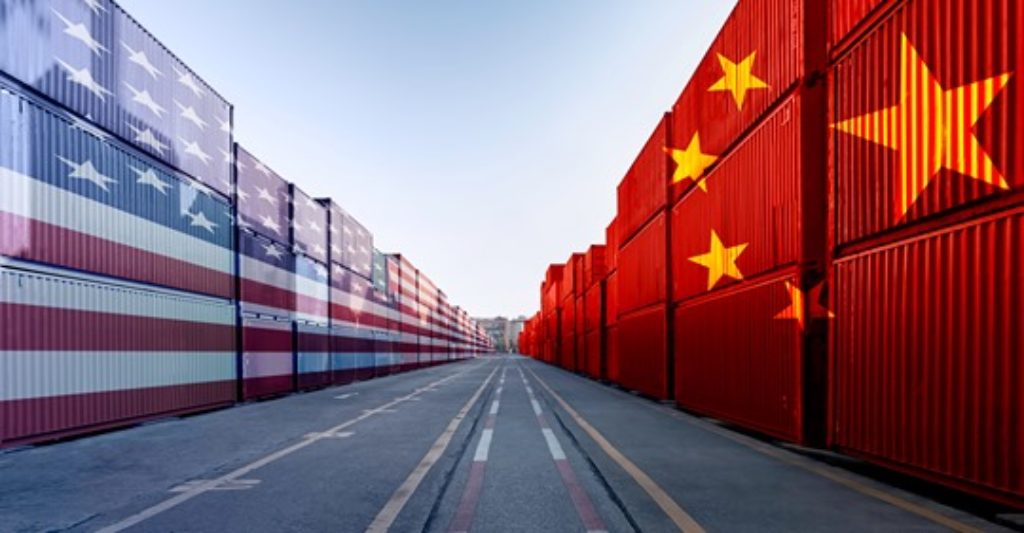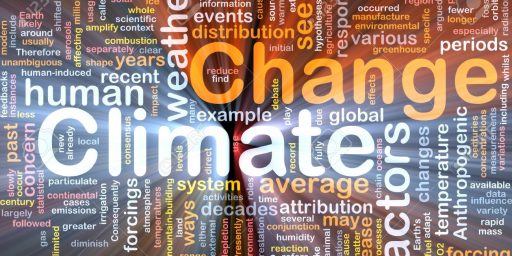Rethinking Chinese Investment
Several trends are pointing in a new direction.

WaPo’s Henry Olsen contends “It’s time for global businesses to admit it: China isn’t a good investment.” That’s a rather bold stance for a “columnist focusing on politics, populism, and American conservative thought” with no training in foreign affairs or economics. But his argument is interesting.
The coronavirus outbreak is the first shock to the Chinese industrial complex. The disease is spreading so fast that China has been forced to quarantine tens of millions of people in their homes and restrict travel between its provinces. This is an economic as well as a humanitarian crisis. Tens of thousands of factories lay idle and won’t reopen for months. Others operate at reduced capacity as workers don’t show up out of fear they will contract the virus, while goods from the plants that are open are stalled at border checks to ensure the virus doesn’t spread.
This is dramatically slowing global growth. Many Western companies depend on Chinese-made parts for the goods they assemble elsewhere. Stop the flow of parts from China, and you stop the flow of goods from the rest of the world. Experts are already projecting the global economy will not grow at all in the first quarter of this year as a result, the first downturn since last decade’s financial crisis.
Now, this isn’t so much an argument that China per se is risky but does seem to point to the dangers of putting all of one’s eggs into one basket.
Companies have to wonder whether China is peculiarly at risk for these mysterious epidemics. The SARS virus exploded out of China in 2003, causing thousands of infections with a 10 percent mortality rate, according to the National Institutes of Health. This was another version of a coronavirus, according to lab tests. China was not the center of global manufacturing then, so its outbreak caused less disruption than is now the case. But no other global power has had two mysterious, rapidly spreading viruses arise in this time period. Is it worth the risk that it could happen again?
China has four times the population of the United States, the second most populous global power. And, arguably, the only other global power. Indeed, it’s arguably whether China was a global power in 2003. And, further speculation from someone with no medical or other scientific training, I’m going to chalk two epidemics in 17 years up to coincidence.
Political pressure from the United States is another risk factor that companies now must weigh. Federal prosecutors unsealed an indictment Thursday against the Chinese telecommunications giant Huawei, alleging the firm engages in racketeering and conspiracy to steal industrial secrets. The United States and other companies have long charged that Chinese firms, under the benign gaze of the Communist government, steal their technology. If the Huawei complaint is just the tip of the iceberg, it means the United States will have to start turning to its own court system to punish alleged miscreants. That in turn will cause any Western business that contracts with Chinese firms under indictment or suspicion to have second thoughts about their relationship. Safer, perhaps, to find company in a country that has less of a risk falling into crosshairs with the U.S. government.
The Obama administration commenced the so-called Asia Pivot in 2011 and China was deemed the chief geopolitical concern in the Trump administration’s National Security Strategy. With the possible exception of a Bernie Sanders administration, it’s quite likely that pressure on China will continue to increase regardless of the outcome of the November Presidential election and well into the foreseeable future.
Further, any US President other than Donald Trump (or, again, Sanders) is likely to be more effective in securing cooperation from our European and Indo-Pacific allies and partners in forcing China to comply with the constraints of the World Trade Organization, UN Convention on the Law of the Sea, and other international strictures. Simply playing by the rules everyone else plays by—including not only respect for intellectual property but also anti-dumping, anti-currency manipulation, etc.—would mitigate the Chinese advantage over other regional players.
Finally, climate-change pressure will soon have to hit business dealings with China. China is the world’s largest emitter of greenhouse gases, and its emissions are increasing faster than the United States and Europe can decrease theirs. But Western developed nations are to blame for much of this increase, as they are the driving forces behind investment in Chinese factories that then export goods back to the West. That gives climate-change activists a powerful lever to use if they decide to get serious about reducing emissions: tariffs.
Most serious climate-change plans already recognize this. They aren’t called tariffs per se; advocates label them as “border tax adjustments.” But they are tariffs, and they would increase the price of goods imported from countries with heavy greenhouse-gas emissions. That will devastate a country such as China, whose industrial rise is fueled by coal-fueled electricity. Indeed, China still is building hundreds of coal-fueled plants despite global pressure to reduce emissions. That will have to stop if we have any chance of beating climate change, but that means plants in China will see their energy costs rise dramatically.
Any Democratic President—yes, even Sanders—would be more likely to rejoin the Paris Climate Accords and otherwise band with the rest of the world in fighting climate change than the current administration. There would likely continue to be some carve-outs for China—while they’re a global power they’re also still in most ways a developing nation—they would in fact be more likely to be more constrained under such an arrangement.
Combined, these factors will increasingly make it cost-effective to bring manufacturing back to the developed world or countries in those nations’ sphere of influence. The United States and Canada, for example, don’t run the risk of plants shutting down because of pandemics and increasingly rely on clean fuels for their energy. Nearby Mexico can offer cheaper labor, and Mexico’s economic dependence on those two giants means it is more amenable to climate-change-induced pressure. European firms have the same incentives and have the low-cost countries of Eastern Europe to invest in, too.
Again, I’m no more an expert on pandemics than Olson but, because of that, am leery of predicting that they can’t or won’t break out in North America. Further, I’m skeptical that the first alternative to manufacturing in China will be to bring jobs back home rather than shifting to India or elsewhere in the region. Although, again, Democratic policies (indeed, perhaps especially Sanders’ or Warren’s) would be more likely to lead in that direction than under current policy.
None of this will happen overnight, but any rational company has to see the writing on the wall. Slow but steady disengagement with China will cost money in the short term but will likely pay off big in the long term.
One presumes companies are factoring risks in already and have decided they’re worthwhile. After all, cheap labor isn’t the only lure of doing business in China—it’s access to a potentially massive domestic consumer market.
Regardless, I think Olsen is broadly on to something. The United States and other Western powers have largely looked the other way on Chinese transgressions for a long time. Partly, it’s because China was underestimated because of its developing status. Mostly, it was a misplaced hope that a rising China would inevitably become more democratic and law-abiding. But that’s already changing and all indications are that the world is now paying attention.






While not a public health professional, I have degree in microbiology & worked as a registered nurse for five years, and am currently a first year medical student. It is no coincidence that these novel respiratory viruses spring up in China. The conditions in parts of the country are right for viruses to mutate from animals to humans, a process known as zoonosis.
When I lived in China, I ran into an executive from a major appliance manufacturer (Westinghouse? GE?) that was repatriating their high end line back to the US. There were a lot of reasons this might be happening. Some examples that many companies deal with: Chinese government-aided theft of their IP, a Chinese company set up to churn out near identical knockoffs with apparent ownership by provincial officials, resulting in increasingly disadvantageous taxes and laws directed at the American company, and so on. But the reason my acquaintance gave wasn’t one I had heard before: the company did a thorough analysis and discovered that when everything was factored in, their products cost more to produce in China and transport from there. I have to say I wasn’t surprised at this. Starting in the eighties McKinsey and other mega-consultants made it clear that CEOs would be judged on their willingness to move to China and there was no incentive to see if the years long effort actually matched the results expected.
Foreign companies are leaving China–and have been for quite a while now–but those jobs aren’t coming back to the US. Dan Harris at <a href="https://chinalawblog.com"China Law Blog has been writing about it. This is from October of 2018″:
China is fiercely nationalistic and proud–and Xi is feeding that for his own purposes. If the world starts pushing them, they won’t fall in line. Xi will use it to say “See? They are afraid of us because we are so powerful.” And then he’ll double down.
Any change is going to have to come from inside… and I have no clue how that would happen.
It’s risky to have all of our production in one place. We suffered for months with loss of products concentrated in Puerto Rico after the Hurricanes. So businesses took everything to China because their analysis showed it would be cheaper. However, no one ever looked to assess the risks of what would happen if all of China was not able to deliver goods. (Does this sound a bit like the financial sector just assuming that housing prices could never drop everywhere at once also?) Let’s face it, our titans of industry and finance concentrate almost entirely on their own short term returns. They make a lot of money fast and damn the long term consequences.
Steve
Endlessly chasing cheap labor around the globe leads to one place in the end: automation. Eventually a robot will do a job for less than it takes a human to survive. Indeed, that’s the reality behind bringing jobs back to the US: 100 jobs for humans leave for China, and three human jobs come back. You can’t fool Mother Profit, it will seek the lowest cost and eventually that comes down to accepting starvation wages or accepting permanent unemployment.
We’ve got a rough century ahead.
@steve:
I see it came out that in 08 Bloomberg blamed the crisis on the law banning redlining. Apparently being leveraged 30:1 would have been OK if those poor people they conned into big loans they couldn’t afford had kept up with the payments.
Charitably, he may have been supporting the Wall Street party line for business reasons. If he actually believes it, he should be barred from the presidency.
Echoing @Paul J Bauer, a moderate knowledge of viruses leaping species would indicate that China is a pretty good incubator for that. Large population centers, wild animal markets, and a traditional interest in “exotic” meats.
This applies to a lot of Asia, but then again, China is a lot of Asia.
I think you’re also missing some bird and swine flu outbreaks, which were mostly contained.
Parts of Africa have similar conditions, but there’s not as much travel. Really, all of the developing world that’s actually developing (modern density and travel, abutting traditional culture that ventures into wild areas)
I’m a little surprised that we haven’t had a plague come up from South America… I wonder if that is related to European diseases wiping out Native Americans, but Native American diseases not wiping out the colonizers. Do American diseases just suck?
@Gustopher: Why do you think Native American diseases didn’t “wipe out” the colonizers? There were many many colonial settlements that disappeared, and many mass die offs even in settlements that persisted. Presumably, many of those were from diseases. And given that most European diseases would have burned themselves out before the settlers ever reached these shores, I always assumed it was a combination of native diseases and poor nutrition that did most of them in. Of course, this isn’t an area I know much about so I could be completely off base.
Can someone rescue me from the queue?
@MarkedMan:
If the European diseases had burned themselves out by the time Europeans crossed the Atlantic – not a bad theory – how come smallpox etc wiped out the Indians?
I can’t think of a specifically pre-Colombian American disease. Colonists died of various, loosely-identified ‘fevers.’ Generally it had to do with crapping upstream in water you drank, or malaria or or yellow fever, good old smallpox. Mosquitoes, poor sanitation, lousy nutrition.
@gVOR08:
I’m pretty sure if we cancel every candidate who has talked some rot at one point or another, we’ll have to forfeit the election.
The problem with ‘I found out A about B therefore X’ is that it advantages people who may not be good people, but are good at hiding their sins and practicing hypocrisy. I’m not suggesting every man is an asshole to women, but there are zero men who, if we had the full record of their lives, would not have said something objectionable. Repeat on race, religion, fat people, handicapped people, etc… All have sinned.
Setting the bar at sainthood is naive, self-defeating and unsustainable. If everything is a capital offense then nothing is. I’ve been beating this drum for a while now. For a system of justice, even an informal one, to work, it cannot be random and indiscriminate.
@Michael Reynolds: A lot of the European diseases had wiped out the chunk of the population that was most susceptible to them in Europe, and Europeans bred back up to their full population as the heartier variety with respect to those diseases.
The diseases didn’t “burn themselves out” so much as they had taken their toll and changed the European gene stock.
Native Americans separated from Asia 10-20,000 years before and were missing that chunk of genetic resistance. They should be very susceptible to diseases brought by the colonists.
@MarkedMan: There’s certainly nothing from pre-Colombian America that affected Europeans on the same scale as European diseases affecting Native Americans. There weren’t massive die-offs in Boston, New York. And Atlanta, for instance.
Instead, there’s Montezuma’s Revenge.
There’s probably a reason for that beyond American viruses just being shiftless and lazy. If I had to guess, I would guess that it has something to do with viruses not being passed from humans to animals until 10-20,000 years ago. But, it’s not like there aren’t primates in the Americas (howler monkeys, Sasquatch, etc.) so humans aren’t that distinct.
@Michael Reynolds:
There’s reason to think syphilis originated in the Americas and traveled to Europe and elsewhere after 1492.